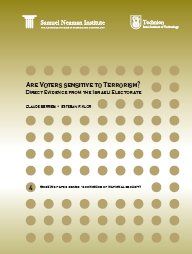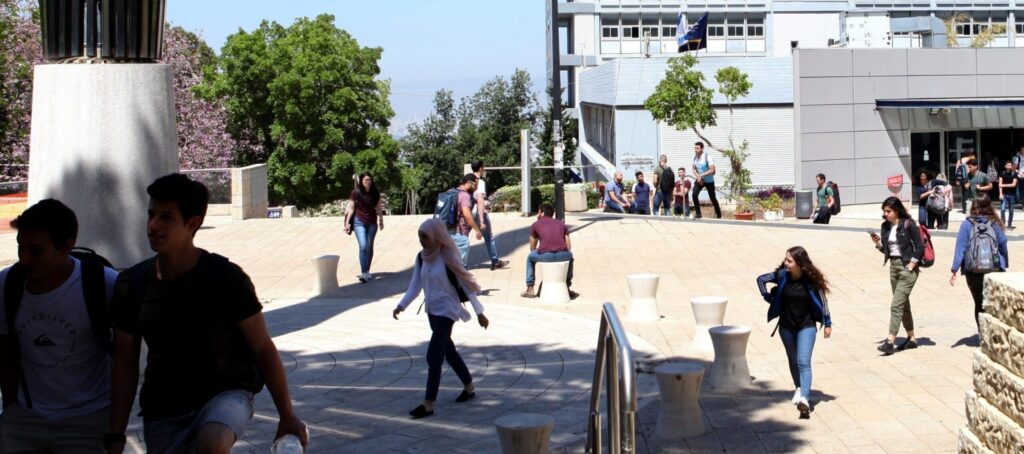עבודה זו משתמשת בשונות של פיגועי הטרור לאורך זמן ובמיקום שלהם על מנת לזהות את ההשפעה הסיבתית שלהם על העדפות של ציבור הבוחרים הישראלי. אנחנו מוצאים כי פיגוע טרור שבוצע בתוך 3 חודשים לפני הבחירות מלווה בעלייה של 1.35 נקודות האחוז בתמיכה במפלגות מגוש הימין באותו האזור. השפעה זו הינה בעלת משמעות פוליטית, בהינתן רמת הטרור בישראל והעובדה שציבור הבוחרים מפולג בצורה כל כך שווה בין גוש ימין ושמאל. יתרה מזו, להתקפות טרור שנסתיימו בהרוגים ישנה השפעה חשובה על הבוחרים מחוץ לאזור שבו היא בוצעה, והשפעה זו חזקה יותר ככל שמועד הפיגוע קרוב יותר למועד הבחירות. מעניין הוא שההשפעה הפוליטית הנצפית קיימת בעיקר בישובים בעלי נטייה פוליטית לגוש השמאל ולא מושפעת מההשתייכות הפוליטית של ראש הממשלה. על כן, טרור לא גורם להקצנת עמדות פוליטיות ע”י ציבור הבוחרים. תוצאות אלה מהוות תמיכה אמפירית חזקה להשערה שציבור הבוחרים מאופיין ע”י תגובה רגישה מאוד לפיגועי הטרור.
 / דוחות ומחקרים / האם ציבור הבוחרים מושפע מטרור? עדות ישירה מהבחירות בישראל
/ דוחות ומחקרים / האם ציבור הבוחרים מושפע מטרור? עדות ישירה מהבחירות בישראל











